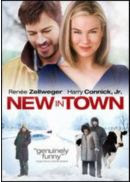
Rated: R for some sequences of violence and language.
Length: 118 minutes
Grade: DDDC=D+
Budget: $50 million
Box Office: $60 million (25 U.S., 32 Intl., 5 DVD)
Length: 118 minutes
Grade: DDDC=D+
Budget: $50 million
Box Office: $60 million (25 U.S., 32 Intl., 5 DVD)
Written by: Eric Singer (First movie)
Directed by: Tom Tykwer (Perfume, Paris je t’aime, Heaven, and Run Lola Run)
Starring: Clive Owen, Naomi Watts, Armin Mueller-Stahl, and Ulrich Thomsen
Summary:
Two Interpol agents are trying to prove that a major international bank is actually dealing arms in an effort to shape conflicts so as to control the debt involved in war financing.
Entertainment Value: D
Let’s start with the positives. This is a visually stunning film. They intentionally wanted the architecture to be a character in the film, and they chose a wide array of amazing, truly amazing places to shoot the action. On the other hand, the plot, the action, and even the characters are a hackneyed montage that winds up feeling like a movie made to be four hours long and then chopped down to just two. And then, to finish it all off, the ending is awful, just awful. I wanted to see this movie, and I wanted to like it. But it did not deliver in the end. Even the very best scene, the amazing shootout in the Guggenheim Museum, winds up lasting so long that it becomes implausible that no police have arrived yet.
Superficial Content: D
Drugs/Alcohol A, Sex/Nudity A, Violence D, Language D, Illegality D
Language and violence. At least, it’s easy to know what might be objectionable about this movie. HOWEVER, you should know that the DVD features several movie trailers with R content, including, and I was totally baffled by this, one that runs automatically before the movie which DOES have several scenes of nudity and sex in it. Yes, they warn you with a red screen rather than the normal green “all audiences” screen, but who on earth would you run a sexually explicit movie trailer in front of a movie which is squeaky clean on sexuality?
Significant Content: D
Law enforcement against multinational organizations is an act of futility. The banks control the world with the cooperation of all the governments and their agencies. Warfare is just another way to control money. Character is easier kept than recovered. To truly fight evil, you must become evil.
Artistic/Thought Value: C
And this is entirely for the visual artistry, which, again, I can’t praise strongly enough. It’s truly breathtaking. But in a movie which doesn’t even remotely do the cinematography justice. In the end, we’re supposed to do what here? Be despondent? I thought Brandon Fibb’s review for Christianity Today was particularly accurate. This movie starts a variety of things that could have been interesting, but it doesn’t finish any of them and can’t really decide what it’s trying to be. For instance, the architecture should represent “the system” which can’t be stopped, but the movie presents this architecture as overwhelmingly beautiful, which is directly at odds with that being the message intended by it.
Discussion Questions:
~Do you have to become evil in order to fight evil? What does the Bible say?
~Do you believe that international financiers are responsible for warfare in the world?
If the architecture in this film is a character, what is that character and what message is he representing?
~Is it naïve to believe in justice and to fight to bring evildoers to justice? What is the Christian perspective on justice, both now and eternally? What would Jesus say about this sort of banking outfit?
~Do movies have an obligation to give us something of what we want? How did the ending of this movie make you feel? How did it make you feel toward the director/writer?
~“The truth means responsibility.” “Which is exactly why everyone wants to avoid it.” What do you interpret this interchange as meaning? Is this a Christian concept?
.
Overall Grade: D+
If it weren’t for the architecture, this would be totally avoidable. But, if you love great architecture, I only mildly encourage you to watch it just for that.











